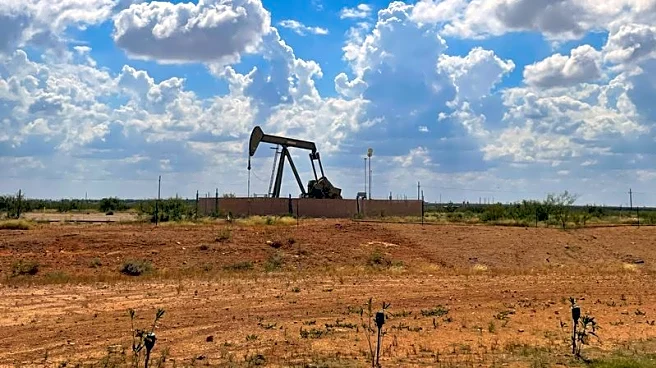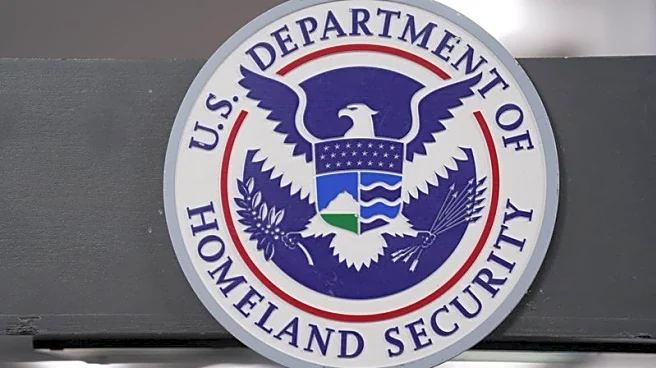What's Happening?
U.S. officials are preparing to conduct the largest coal sales from public lands in over a decade, offering 600 million tons from reserves in Montana and Wyoming. This initiative is part of President Trump's strategy to boost coal production from federal lands for electricity generation. However, data indicates that most power plants served by these mines plan to cease coal usage within the next decade. Despite the declining demand, the administration is moving forward with lease sales in the Powder River Basin, a major coal-producing region. The sales are proceeding despite a government shutdown, with workers processing fossil fuel permits exempted from furlough. The administration has also reduced royalty rates for coal and pledged funds to modernize coal plants, aiming to meet growing electricity demand.
Why It's Important?
The revival of coal sales from public lands under President Trump's administration highlights a significant policy shift towards fossil fuels, despite the industry's decline and environmental concerns. The move raises questions about the future of coal in the U.S. energy sector, as many power plants are transitioning to cleaner energy sources. The administration's actions could provide a temporary boost to coal production, but long-term demand is expected to decrease. This policy could impact the U.S. energy market, potentially delaying the transition to renewable energy and affecting climate change efforts. Stakeholders in the coal industry may benefit in the short term, but the broader implications for environmental policy and energy markets remain uncertain.
What's Next?
The upcoming lease sales in Montana and Wyoming are set to proceed, with the government exempting workers involved in fossil fuel permits from the shutdown. The administration's actions may face legal and political challenges, especially from environmental groups and states advocating for cleaner energy. As power plants continue to phase out coal, the long-term viability of these sales is uncertain. The administration's commitment to coal could influence future energy policies and market dynamics, potentially affecting investment in renewable energy projects. Stakeholders will be closely monitoring the impact of these sales on the coal industry and the broader energy market.
Beyond the Headlines
The decision to revive coal sales from public lands raises ethical and environmental concerns, particularly regarding climate change. Burning coal contributes significantly to carbon emissions, and the administration's actions may conflict with global efforts to reduce greenhouse gases. The policy also highlights the tension between economic interests and environmental sustainability, as the government prioritizes short-term economic gains over long-term environmental health. This development could influence public opinion and policy debates on energy and climate change, potentially shaping future legislative and regulatory actions.











